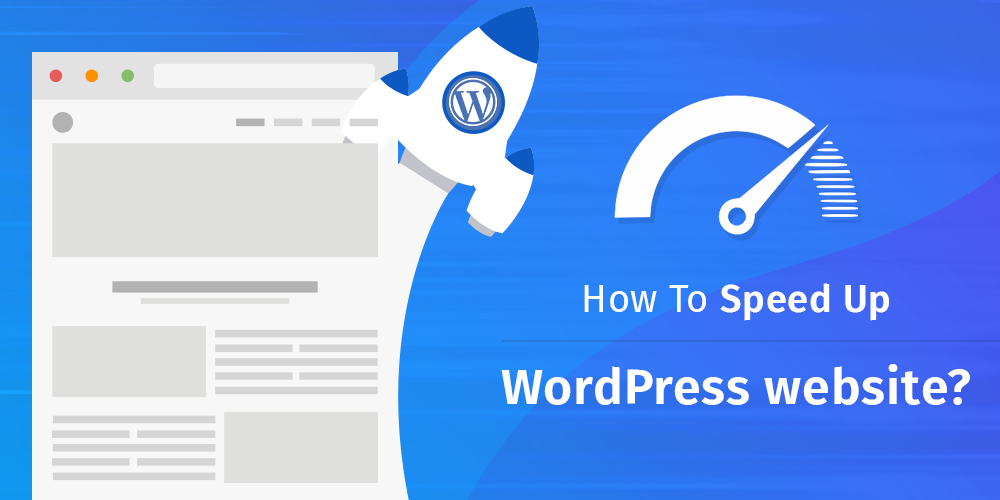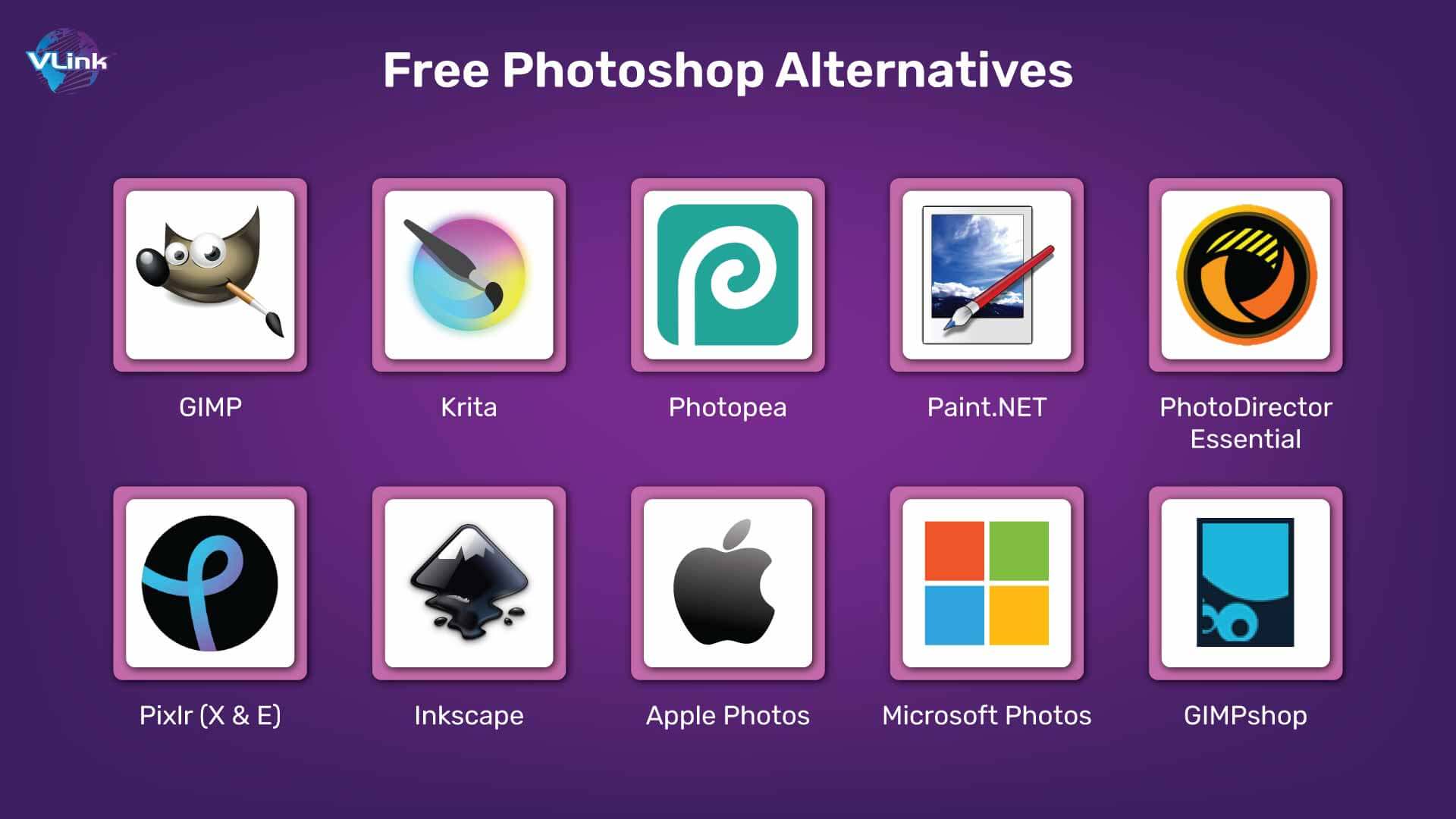Blog
Openhouseperth.net Lawyer: Your Trusted Legal Partner in Perth
Published
9 months agoon
By
TONY GRAY
In today’s fast-paced and ever-changing legal environment, the need for competent legal counsel is paramount. Openhouseperth.net Lawyer stands out as a key player in the legal scene of Perth, providing a diverse range of legal services to businesses, individuals, and institutions alike. With the complexities of the law affecting everyday life, it’s more important than ever to have a reliable and skilled lawyer at your side. This article delves into the detailed analysis of Openhouseperth.net Lawyer, shedding light on their service offerings, expertise, and the pivotal role they play in the Perth legal landscape.
Introduction: Why Choosing the Right Lawyer Matters
Legal challenges, whether personal or business-related, can be overwhelming. Navigating the intricacies of contracts, disputes, property matters, or even more serious issues such as litigation or criminal charges requires not just knowledge, but also experience and strategic thinking. Openhouseperth.net Lawyer is dedicated to offering personalized legal solutions, understanding that each client’s needs are unique.
In Perth, the legal framework is multi-layered and often demanding. Businesses, in particular, face regulatory requirements, compliance issues, and potential litigation. Having a lawyer who is well-versed in local laws and practices can make the difference between a smooth legal process and a drawn-out legal battle.
Openhouseperth.net Lawyer: Overview and Expertise
Openhouseperth.net Lawyer brings a wealth of experience to the table, covering a broad spectrum of legal fields. Their team is composed of seasoned professionals, each specializing in areas critical to modern-day legal needs. From corporate law to personal legal matters, their expertise spans across various legal domains, ensuring that clients receive well-rounded advice and representation.
Key Areas of Expertise:
- Corporate Law: Providing essential services to businesses, such as contract negotiation, mergers and acquisitions, regulatory compliance, and corporate governance.
- Family Law: Handling sensitive issues such as divorce, child custody, property settlements, and spousal maintenance with compassion and professionalism.
- Criminal Law: Defending clients in cases ranging from minor offenses to serious criminal charges, ensuring that justice is served through diligent representation.
- Real Estate and Property Law: Offering guidance on property transactions, leasing agreements, and real estate disputes.
- Civil Litigation: Representing clients in a variety of disputes, from contractual disagreements to personal injury claims.
The Legal Process: What to Expect from Openhouseperth.net Lawyer
When engaging with a lawyer from Openhouseperth.net, clients can expect a systematic and thorough approach to their legal issues. The legal process is often daunting, but the team at Openhouseperth.net strives to make it as straightforward as possible. They break down the legal complexities into understandable terms, ensuring that clients are always well-informed about their case’s progress.
Initial Consultation: Defining Your Legal Needs
The journey with Openhouseperth.net Lawyer typically begins with an initial consultation, where the lawyer assesses the client’s situation, discusses potential legal strategies, and outlines the steps needed to resolve the issue. This stage is crucial for building trust and establishing clear communication between the client and the lawyer.
Case Development: Building a Strong Legal Foundation
Once the case has been defined, the legal team embarks on gathering all necessary information and documentation. This stage involves detailed research, interviews, and data collection to build a strong foundation for the case. For businesses, this may involve reviewing contracts, while for individuals, it could mean compiling financial records, property deeds, or medical reports.
Negotiation and Settlement: Achieving the Best Outcome
Many legal disputes are resolved without going to court, and Openhouseperth.net Lawyer excels in negotiating favorable settlements. Their experience in negotiation allows them to achieve outcomes that align with their clients’ best interests, whether it’s securing a financial settlement or finalizing a business deal.
Litigation and Court Representation: Fighting for Justice
In situations where negotiations fail, Openhouseperth.net Lawyer is prepared to take the case to court. With a strong track record in litigation, their lawyers present compelling arguments, backed by solid evidence and legal precedents. Courtroom representation requires a different skill set, and Openhouseperth.net Lawyer’s experience in this area ensures that clients have the best chance of success.
Openhouseperth.net Lawyer and Business Law
For businesses in Perth, navigating the legal landscape can be challenging. Openhouseperth.net Lawyer provides specialized services that help companies of all sizes comply with regulations, manage legal risks, and resolve disputes efficiently. Whether you’re a startup or a well-established corporation, their expertise in business law ensures that your legal needs are met.
Corporate Contracts and Agreements
Business operations are built on contracts, and Openhouseperth.net Lawyer is adept at drafting, reviewing, and negotiating contracts to ensure that businesses are protected. From employment contracts to supplier agreements, they ensure that all legal documents are clear, enforceable, and in the best interest of the company.
Mergers and Acquisitions
In a dynamic business environment, mergers and acquisitions (M&A) are common. Openhouseperth.net Lawyer offers comprehensive M&A services, assisting companies in navigating the complexities of corporate restructuring. Their legal guidance covers everything from due diligence to regulatory compliance, ensuring a smooth transition during mergers or acquisitions.
Employment Law
Managing employees is a critical aspect of business, and Openhouseperth.net Lawyer offers expert advice on employment law. This includes helping businesses draft employment contracts, address workplace disputes, and ensure compliance with local labor laws. They also assist in defending companies against employment-related claims, such as wrongful termination or discrimination lawsuits.
Family Law: Compassionate Legal Support for Sensitive Issues
Family law requires a unique combination of legal knowledge and empathy. Openhouseperth.net Lawyer understands the emotional strain that accompanies family legal issues, and they approach each case with care and sensitivity.
Divorce and Separation
Divorce can be one of the most challenging experiences in a person’s life. Openhouseperth.net Lawyer provides guidance throughout the divorce process, helping clients navigate property settlements, spousal maintenance, and child custody arrangements. Their goal is to ensure a fair outcome while minimizing the emotional toll on all parties involved.
Child Custody and Support
When children are involved, family law cases become even more delicate. Openhouseperth.net Lawyer prioritizes the well-being of the child while ensuring that both parents’ rights are respected. They work towards custody arrangements that serve the best interests of the child and ensure that child support agreements are fair and legally binding.
Real Estate and Property Law: Securing Your Investments
The real estate market in Perth is competitive, and whether you’re buying, selling, or leasing property, having a lawyer to guide you through the legal process is essential. Openhouseperth.net Lawyer specializes in property law, offering services that protect their clients’ investments and ensure that all transactions are legally sound.
Property Transactions
Buying or selling property is a significant financial decision, and Openhouseperth.net Lawyer ensures that every detail is addressed. They handle everything from contract drafting to settlement negotiations, ensuring that their clients’ interests are protected throughout the transaction process.
Leasing Agreements
For both landlords and tenants, leasing agreements can be a source of conflict. Openhouseperth.net Lawyer assists in drafting clear and enforceable lease agreements that prevent disputes and protect the rights of both parties. If conflicts arise, they also provide representation in lease disputes, ensuring that their clients’ interests are upheld.
Criminal Law: Strong Defense for Serious Charges
Being charged with a criminal offense is a serious matter, and Openhouseperth.net Lawyer offers robust legal representation for individuals facing criminal charges. Their team of criminal defense lawyers is experienced in handling cases ranging from minor offenses to serious criminal charges, including fraud, assault, and drug offenses.
Legal Representation for Criminal Charges
Openhouseperth.net Lawyer provides comprehensive legal defense services, ensuring that their clients’ rights are protected throughout the legal process. They conduct thorough investigations, gather evidence, and build strong defense strategies to achieve the best possible outcome.
Courtroom Defense and Plea Bargaining
Whether the case is resolved through plea bargaining or goes to trial, Openhouseperth.net Lawyer is prepared to fight for their clients. Their courtroom experience and deep understanding of criminal law allow them to present compelling arguments that challenge the prosecution’s case, increasing the chances of a favorable outcome.
FAQs
- What services does Openhouseperth.net Lawyer offer?
- How can Openhouseperth.net Lawyer help businesses?
- What should I expect during my first consultation?
- Does Openhouseperth.net Lawyer handle family law cases?
- How does Openhouseperth.net Lawyer approach criminal defense?
- Is Openhouseperth.net Lawyer experienced in real estate law?
Conclusion
Openhouseperth.net Lawyer is a trusted legal partner for individuals and businesses in Perth, offering a wide range of legal services that cater to various needs. Whether you’re dealing with a complex business dispute, a sensitive family matter, or a serious criminal charge, their expertise and commitment to client success make them a top choice in Perth’s legal scene.
For anyone in need of legal counsel, choosing Openhouseperth.net Lawyer means choosing a team that is dedicated to achieving the best possible outcomes. Their combination of experience, professionalism, and personalized service sets them apart in the competitive world of law.
You may like
Blog
How to Speed Up Your WordPress Site: A Comprehensive Guide
Published
2 weeks agoon
May 19, 2025By
TONY GRAY
Introduction
In today’s fast-paced digital world, website speed is more critical than ever. A slow-loading WordPress site can lead to higher bounce rates, lower search engine rankings, and decreased conversions. Studies show that 40% of visitors will abandon a website that takes more than 3 seconds to load, and Google considers page speed as a ranking factor for both desktop and mobile searches.
This comprehensive guide will walk you through practical, actionable strategies to significantly improve your WordPress site’s performance. Whether you’re a beginner or an experienced WordPress user, these optimization techniques will help you achieve faster load times and better user experience.
Why Website Speed Matters

Before diving into the optimization techniques, let’s understand why speed is so crucial:
- User Experience: Fast-loading pages keep visitors engaged and reduce bounce rates.
- SEO Benefits: Google and other search engines favor faster websites in their rankings.
- Conversion Rates: Every second of delay can lead to a 7% reduction in conversions (Amazon found that 100ms of latency cost them 1% in sales).
- Mobile Performance: With increasing mobile traffic, speed optimization becomes even more critical for users on slower connections.
How to Measure Your WordPress Site Speed

Before making any changes, establish your baseline performance using these tools:
- Google PageSpeed Insights: Provides scores for both mobile and desktop with specific recommendations.
- GTmetrix: Offers detailed analysis with waterfall charts showing load sequence.
- Pingdom Tools: Allows testing from different locations worldwide.
- WebPageTest: Provides advanced metrics like Time to First Byte (TTFB).
Record your current scores to measure improvement after implementing these optimizations.
1. Choose Quality Hosting
Your hosting provider forms the foundation of your website’s performance:
Types of Hosting:
- Shared Hosting: Affordable but shares resources with other sites (not ideal for speed).
- VPS Hosting: Dedicated portion of server resources, better performance.
- Dedicated Hosting: Entire server for your site (expensive but fastest).
- Managed WordPress Hosting: Optimized specifically for WordPress (e.g., WP Engine, Kinsta).
Recommendations:
- Look for hosts with SSD storage, PHP 8.0+, HTTP/2 support
- Choose servers geographically close to your audience
- Consider hosts with built-in caching (LiteSpeed, Nginx)
2. Use a Lightweight Theme
Your theme significantly impacts performance:
- Avoid multipurpose themes with excessive features you don’t need
- Choose themes optimized for speed (GeneratePress, Astra, Neve)
- Test theme performance before committing (use demo versions with GTmetrix)
- Remove unused themes from your WordPress installation
3. Implement Caching Solutions
Caching stores static versions of your pages to reduce server processing:
Types of Caching:

- Page Caching: Stores complete HTML pages
- Object Caching: Stores database query results (Redis, Memcached)
- Browser Caching: Stores static files on visitor’s device
Recommended Plugins:
- WP Rocket (premium, easiest to use)
- LiteSpeed Cache (free, excellent for LiteSpeed servers)
- WP Super Cache (free, by Automattic)
- W3 Total Cache (free, powerful but complex)
Configure cache expiration properly (1 month for static assets is common).
4. Optimize Images
Images often account for most of a page’s weight:
Best Practices:
- Compress images before uploading (TinyPNG, ShortPixel)
- Use modern formats (WebP typically 30% smaller than JPEG)
- Implement lazy loading (native in WordPress 5.5+)
- Serve responsive images (srcset attribute)
- Consider CDN for images (see next section)
Recommended Plugins:
- ShortPixel Image Optimizer
- Imagify
- EWWW Image Optimizer
5. Use a Content Delivery Network (CDN)
A CDN stores your static files on servers worldwide:
Benefits:
- Reduced physical distance between server and visitor
- Offloads traffic from your main server
- Often includes additional optimizations
Popular Options:
- Cloudflare (free plan available)
- BunnyCDN (affordable, excellent performance)
- StackPath
- KeyCDN
Configure your CDN to handle CSS, JS, images, and fonts.
6. Optimize WordPress Database
Over time, your database accumulates clutter:

What to Clean:
- Post revisions
- Spam comments
- Transient options
- Orphaned post meta
Recommended Plugins:
- WP-Optimize
- Advanced Database Cleaner
Schedule weekly cleanups (but always backup first).
7. Minify and Combine Files
Reduce the size and number of requests:
- CSS/JS Minification: Remove whitespace and comments
- File Combination: Merge multiple files into one
- Critical CSS: Load above-the-fold CSS first
Most caching plugins include these features (WP Rocket, Autoptimize).
8. Implement Lazy Loading
Delay loading offscreen elements until needed:
- Native in WordPress 5.5+ for images/iframes
- Consider plugins for more control (a3 Lazy Load)
- Can apply to videos, comments, etc.
9. Optimize WordPress Core
PHP Version:
- Use PHP 8.0+ (significantly faster than 7.x)
- Check compatibility with your plugins first
10. Reduce External HTTP Requests
Each external resource adds overhead:
- Minimize third-party scripts (analytics, ads, social media)
- Load scripts asynchronously or defer them
- Consider self-hosting popular libraries (Google Fonts, Font Awesome)
11. Use Efficient Plugins
Every plugin adds potential performance overhead:
- Audit your plugins (deactivate and test speed)
- Replace resource-heavy plugins with alternatives
- Look for plugins with “doesn’t load on frontend” option
- Remove unused plugins completely
12. Optimize Your Homepage
The homepage is often the most visited page:
Consider static front page instead of blog roll
Limit the number of posts shown
Avoid complex sliders/animations
Simplify your layout
13. Implement DNS Prefetching
Tell browsers to resolve domain names in advance:
14. Upgrade to HTTP/2
HTTP/2 offers significant performance benefits:
- Multiplexing (multiple files in one connection)
- Server push
- Header compression
Most quality hosts now support HTTP/2 (requires SSL).
15. Monitor and Maintain Performance
Speed optimization isn’t a one-time task:
- Schedule monthly performance audits
- Monitor uptime and response times
- Stay updated with WordPress core and plugins
- Test after making significant content changes
Advanced Techniques
For those comfortable with technical implementations:
1. Use a Faster DNS Provider
- Cloudflare (1.1.1.1)
- Google DNS (8.8.8.8)
- Quad9 (9.9.9.9)
2. Implement OPcache
- Built into PHP
- Stores precompiled script bytecode
3. Consider Static Page Generators
- For mostly static sites (WP2Static plugin)
4. Edge Caching
- Varnish Cache
- Cloudflare Enterprise
Common Pitfalls to Avoid
- Over-optimization: Don’t sacrifice functionality for minimal gains
- Ignoring Mobile: Test thoroughly on mobile devices
- No Backups: Always backup before major changes
- Chasing Perfect Scores: Focus on real-world performance
Measuring Your Success
After implementing these changes:
- Re-test with the same tools you used initially
- Compare before/after metrics:
- Load time
- Page size
- Number of requests
- Time to First Byte (TTFB)
- Monitor real-user metrics in Google Analytics
Conclusion
Optimizing your WordPress site’s speed is an ongoing process that pays dividends in user satisfaction, search rankings, and conversions. By methodically implementing these strategies—starting with hosting and theme selection, through caching and image optimization, to advanced techniques—you can dramatically improve your site’s performance.
Remember that every website is different, so test each change and monitor results. Some optimizations might yield significant improvements while others may have minimal impact on your specific setup. The key is persistence and regular maintenance.
Start with the low-hanging fruit (caching, image optimization), then progress to more advanced techniques as needed. With these strategies in place, you’ll be well on your way to providing visitors with a blazing-fast WordPress experience that keeps them engaged and coming back for more.
Blog
The Ultimate Guide to Becoming a Successful Blogger in 2025
Published
2 weeks agoon
May 17, 2025By
TONY GRAY
Introduction
Blogging has evolved from a simple online journaling hobby into a full-fledged career path for millions of people worldwide. Whether you want to share your passion, build a personal brand, or generate income, blogging offers endless opportunities.
In this comprehensive guide, we’ll cover everything you need to know about becoming a successful blogger in 2024, including:
- What is Blogging?
- Why Start a Blog?
- Choosing a Blogging Niche
- Setting Up Your Blog
- Creating High-Quality Content
- Growing Your Audience
- Monetizing Your Blog
- SEO for Bloggers
- Common Blogging Mistakes to Avoid
- The Future of Blogging
By the end of this article, you’ll have a clear roadmap to launching and growing a successful blog.
1. What is Blogging?
A blog (short for “weblog”) is an online platform where individuals or businesses share written content, images, videos, and other media. Blogging involves regularly updating a website with posts that engage, inform, or entertain readers.
Types of Blogs:
- Personal Blogs – Share life experiences, opinions, and hobbies.
- Business Blogs – Promote brands, products, and services.
- Niche Blogs – Focus on specific topics (e.g., travel, tech, finance).
- Affiliate Blogs – Earn commissions by promoting products.
- News & Magazine Blogs – Cover trending topics and industry news.
Blogs can be hosted on platforms like WordPress, Blogger, or Wix, or as independent self-hosted websites.
2. Why Start a Blog?
There are numerous reasons why people start blogs:
A. Personal Benefits
- Express Yourself – Share thoughts, creativity, and expertise.
- Build a Personal Brand – Establish authority in your field.
- Improve Writing Skills – Regular blogging enhances communication.
B. Professional & Financial Benefits
- Earn Money – Through ads, sponsorships, and affiliate marketing.
- Work from Anywhere – Blogging offers location independence.
- Networking Opportunities – Connect with influencers and brands.
C. Business Benefits
- Boost SEO & Traffic – Blogs help businesses rank higher on Google.
- Engage Customers – Provide valuable content to your audience.
- Generate Leads – Convert readers into customers.
Whether for passion or profit, blogging is a powerful tool for personal and professional growth.
3. Choosing a Blogging Niche
Selecting the right niche is crucial for long-term success. A niche is a specific topic your blog focuses on, such as fitness, finance, or fashion.
How to Choose a Niche:




Profitable Blogging Niches in 2024:
- Health & Wellness (Fitness, Mental Health, Nutrition)
- Personal Finance & Investing
- Technology & Gadgets
- Travel & Lifestyle
- Parenting & Family
- Sustainable Living & Green Energy
- Digital Marketing & Entrepreneurship
Once you’ve chosen a niche, stick to it to build a loyal audience.
4. Setting Up Your Blog
Now that you’ve selected a niche, it’s time to set up your blog.
Step 1: Choose a Domain Name
- Keep it short, memorable, and brandable.
- Use a .com extension if possible.
- Avoid numbers and hyphens.
Step 2: Select a Hosting Provider
Popular hosting services:
- Bluehost (Beginner-friendly)
- SiteGround (Fast & Secure)
- Hostinger (Affordable)
Step 3: Install WordPress
WordPress powers over 40% of all websites due to its flexibility and ease of use. Most hosting providers offer 1-click WordPress installation.
Step 4: Pick a Theme
Choose a responsive, SEO-friendly theme like:
- Astra
- GeneratePress
- Divi
Step 5: Install Essential Plugins
- Yoast SEO (Optimize for search engines)
- Akismet (Block spam comments)
- WP Rocket (Speed up your site)
- MonsterInsights (Track traffic with Google Analytics)
Your blog is now ready for content creation!
5. Creating High-Quality Content
Content is the backbone of blogging. High-quality posts attract readers and improve search rankings.
How to Write Engaging Blog Posts:






Content Ideas for Bloggers:
- How-to Guides
- Listicles (e.g., “10 Best Tools for…”)
- Product Reviews
- Case Studies
- Personal Stories
- Trend Analysis
Post consistently (at least 1-2 times per week) to keep readers engaged.
6. Growing Your Audience
Without readers, your blog won’t succeed. Here’s how to attract and retain an audience.
A. Social Media Promotion
- Share posts on Facebook, Twitter, LinkedIn, Pinterest, and Instagram.
- Join Facebook Groups and Reddit communities in your niche.
B. Email Marketing
- Build an email list using ConvertKit or Mailchimp.
- Offer a freebie (e.g., eBook, checklist) to attract subscribers.
C. Guest Blogging
- Write for established blogs to gain backlinks and exposure.
D. Engage with Readers
- Reply to comments and emails.
- Run polls and Q&A sessions.
E. Collaborate with Influencers
- Partner with YouTubers, podcasters, and bloggers for cross-promotion.
Growing an audience takes time, so stay patient and persistent.
7. Monetizing Your Blog
Once you have steady traffic, you can start earning money.
A. Advertising (Google AdSense, Mediavine)
- Display ads on your blog for passive income.
B. Affiliate Marketing (Amazon Associates, ShareASale)
- Earn commissions by recommending products.
C. Sponsored Posts
- Brands pay you to write reviews or feature their products.
D. Selling Digital Products
- eBooks, courses, templates, and printables.
E. Membership & Subscriptions
- Offer exclusive content via Patreon or MemberPress.
F. Freelance Services
- Offer consulting, coaching, or writing services.
Diversify income streams for financial stability.
8. SEO for Bloggers
Search Engine Optimization (SEO) helps your blog rank higher on Google.
Key SEO Strategies:





SEO takes time but is essential for organic growth.
9. Common Blogging Mistakes to Avoid





Learn from mistakes and keep improving.
10. The Future of Blogging
Blogging continues to evolve with trends like:
- AI-Generated Content (Tools like ChatGPT assist writers).
- Video & Interactive Content (More blogs will embed videos).
- Voice Search Optimization (Optimize for smart speakers).
- Niche Microblogs (Smaller, hyper-focused audiences).
Adapting to trends ensures long-term success.
Conclusion
Blogging is a rewarding journey that requires passion, consistency, and strategy. By choosing the right niche, creating valuable content, and leveraging SEO and monetization techniques, you can build a thriving blog in 2024.
Start today, stay persistent, and watch your blog grow into a successful platform!
Blog
Free Alternatives to Photoshop: The Ultimate Guide
Published
2 weeks agoon
May 16, 2025By
TONY GRAY
Adobe Photoshop is the industry standard for photo editing, graphic design, and digital art. However, its high subscription cost makes it inaccessible for many users. Fortunately, there are several free alternatives to Photoshop that offer powerful features without the price tag.
In this guide, we’ll explore the best free Photoshop alternatives, their key features, and who they’re best suited for. Whether you’re a beginner, hobbyist, or professional, there’s a free tool that can meet your needs.
Why Look for a Free Photoshop Alternative?
Before diving into the alternatives, let’s discuss why someone might want a free Photoshop replacement:
- Cost Savings – Photoshop requires a monthly subscription, which can be expensive for casual users.
- Learning Curve – Some users prefer simpler tools for basic edits.
- Open-Source & Privacy – Many free alternatives are open-source, meaning no data tracking.
- Cross-Platform Availability – Some free tools work on Linux, Mac, and Windows, unlike Photoshop.
Now, let’s explore the best free Photoshop alternatives in 2024.Overview
GIMP is the most popular free Photoshop alternative, offering advanced editing tools for photo retouching, digital painting, and graphic design. It’s open-source and available for Windows, Mac, and Linux.
Key Features





Who Is It For?
- Advanced users who need a Photoshop-like experience.
- Designers & Photographers who want a free, open-source tool.
Limitations
Steeper learning curve than simpler editors.
No native CMYK support (requires a plugin).
Overview
Photopea is a browser-based Photoshop clone that supports PSD files and offers similar tools. It’s perfect for quick edits without installing software.
Key Features




Who Is It For?
- Students & Casual Users who need quick edits.
- Professionals who want a free online Photoshop alternative.
Limitations
Requires an internet connection.
Free version has ads; paid version removes them.
3. Krita (Best for Digital Painting)
Overview
Krita is a free digital painting tool designed for artists. While it’s not a full Photoshop replacement, it excels in illustration and concept art.
Key Features




Who Is It For?
- Digital Artists & Illustrators
- Comic Book Creators & Animators
Limitations
Not ideal for photo editing (focuses on painting).
No built-in RAW editing.
4. Pixlr (Free Online Editor)

Overview
Pixlr is a user-friendly online editor with AI-powered tools. It has two versions: Pixlr E (advanced) and Pixlr X (simpler).
Key Features



Who Is It For?
- Social Media Managers
- Beginners who want quick edits.
Limitations
Free version has ads and watermarks.
Limited advanced features compared to GIMP.
5. Paint.NET (Lightweight Photoshop Alternative)
Overview
Paint.NET is a simplified Photoshop alternative for Windows users. It’s faster than GIMP but less feature-rich.
Key Features



Who Is It For?
- Casual Users who need basic edits.
- Windows Users who want a lightweight tool.
Limitations
Only available on Windows.
No advanced features like Photoshop.
6. Canva (Graphic Design Tool)
Overview
Canva is a freemium graphic design tool for non-designers. It’s great for social media posts, flyers, and presentations.
Key Features



Who Is It For?
- Small Business Owners
- Social Media Marketers
Limitations


Final Recommendations:
- For Professionals: Use GIMP or Photopea.
- For Digital Artists: Choose Krita.
- For Quick Edits: Try Pixlr or Paint.NET.
- For Social Media Graphics: Canva is the best.
All these tools are 100% free, so experiment and find the best fit for your needs!
Trending
-

 Blog4 months ago
Blog4 months agoLPL Financial Memphis Brooks Moneypenny: A Comprehensive Overview
-

 Blog8 months ago
Blog8 months agoExploring the Fascinating World of Lizardbreath5678
-

 Blog5 months ago
Blog5 months agoBSTOER.TOP: Your Ultimate Online Shopping Destination
-

 Blog10 months ago
Blog10 months agoThe C.W. Park USC Lawsuit_ An In-Depth Examination
-

 Business9 months ago
Business9 months agoDiscover How 5StarsStocks AI is Transforming Stock Trading
-

 Tech5 months ago
Tech5 months agoTechdae FRL: A Revolution in the Tech Landscape
-

 Blog6 months ago
Blog6 months agoGV-RML4005: An In-Depth Overview
-

 News2 weeks ago
News2 weeks agoScrolller: The Ultimate Infinite Scrolling Experience for Visual Content

